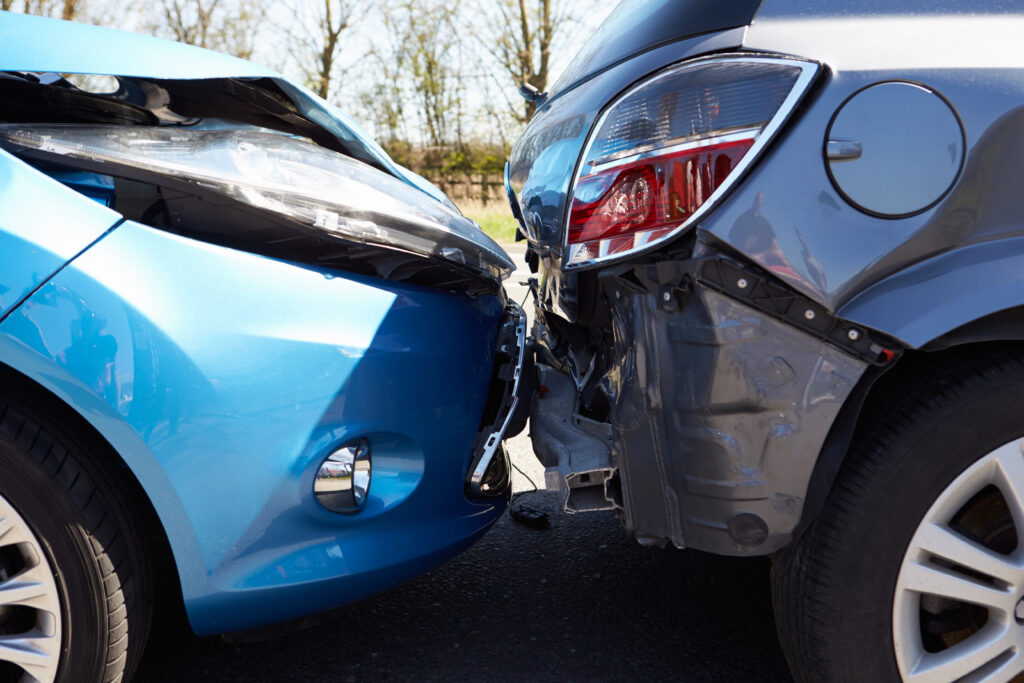How to Handle Delayed Pain After a Car Accident
After a car accident, it’s common to feel shaken but relieved, especially if you don’t experience immediate pain. However, many auto accident injuries don’t present symptoms right away. Delayed pain is a real and serious issue that can appear hours, days, or even weeks after the collision.
If you’ve started to experience delayed pain after a car accident, understanding the potential causes, symptoms, and steps to take can help protect your health—and your personal injury claim.

Why Delayed Pain Happens
The human body responds to trauma with a surge of adrenaline, which can mask physical symptoms of injury in the moment. As that adrenaline wears off, pain and discomfort may begin to surface. This delayed onset is especially common in soft tissue injuries, spinal cord injuries, and internal bleeding.
Some injuries that may not be immediately apparent include:
- Whiplash injury and other soft tissue damage
- Traumatic brain injuries (TBIs)
- Internal injuries involving organs or blood vessels
- Spinal injuries or herniated discs
- Abdominal pain indicating internal bleeding
- Neck pain, shoulder pain, or chest pain from impact
- Psychological symptoms such as post traumatic stress disorder
Pain after an accident doesn’t always happen right away. For some, the symptoms are subtle—such as stiffness or headaches. For others, they can be life threatening if left untreated.
Common Delayed Symptoms After an Auto Accident
You may experience delayed symptoms that seem unrelated to the crash. But they may signal serious injury. Be aware of:
- Headaches that may indicate a concussion or blood clot
- Back or neck pain that could stem from spinal damage
- Abdominal pain or stomach pain, which may be linked to internal organ trauma
- Blurry vision or dizziness, a sign of traumatic brain injuries
- Emotional distress or flashbacks connected to traumatic stress disorder PTSD
- Chronic pain or lingering soreness in muscles and joints
Even minor motor vehicle accidents or rear end collisions can lead to significant injuries that take time to manifest.
What to Do If You Experience Delayed Pain
If you notice symptoms hours or days after an auto accident, it’s critical to take action immediately. Delayed pain can worsen over time and affect your long-term recovery.
Follow these steps:
- Seek medical attention as soon as you notice symptoms.
- Ask for a full medical evaluation, including scans or imaging if necessary.
- Document your symptoms in detail, including the timing and severity.
- Follow all medical treatment recommendations, including physical therapy and follow up appointments.
- Keep all medical records and bills related to the accident.
- Contact a personal injury lawyer who can advise you on your legal options.
Do not wait to see if the pain goes away. Getting medical help quickly can improve your prognosis and support your injury claim.

Why Delayed Pain Matters in a Personal Injury Claim
Insurance companies often look for reasons to minimize payouts. If you delay seeking medical attention, they may argue your injuries aren’t related to the accident. That’s why it’s essential to report delayed symptoms and obtain medical documentation to connect your pain directly to the crash.
Personal injury claims can include compensation for:
- Medical bills and treatment expenses
- Pain and suffering due to delayed injuries
- Loss of income from time off work
- Long-term medical care or rehabilitation
- Emotional distress and mental health care
A car accident attorney can help prove that your injuries stem from the accident—even if the pain didn’t appear right away.
Seek Legal Support for Delayed Injuries
A personal injury lawyer understands how delayed pain can affect your health and your legal case. Whether you’re experiencing back pain, headaches, or emotional symptoms, an attorney will work with medical professionals to document your injuries and build a strong case for compensation.
They’ll also deal with insurance companies, who may try to discredit your experience. With an experienced car accident attorney on your side, you can focus on healing while your legal team handles the rest.
Learn more about how to handle delayed pain after a car accident. Call Greenstein & Pittari, LLP at (800) 842-8462 to schedule your free, no-obligation consultation. You can also reach us anytime through our contact page. Let us help you take the first step toward recovery and fair compensation.
FAQ: Delayed Pain After an Accident
Can pain from a car accident show up days later?
Yes. Many car accident injuries, such as soft tissue injuries or internal bleeding, can result in delayed symptoms that surface days after the crash.
What kinds of injuries cause delayed pain?
Common injuries include whiplash, concussions, herniated discs, internal organ damage, and traumatic brain injuries. Even psychological trauma like PTSD can take time to appear.
What should I do if I start experiencing pain after the accident?
Seek medical attention immediately. Delayed pain can signal serious injury, and early diagnosis can improve both your health outcome and legal case.
Will insurance companies cover delayed injuries?
They may, but only if there’s strong medical documentation linking the symptoms to the accident. Insurance companies often dispute delayed claims without timely evidence.
Can I still file a personal injury claim for delayed symptoms?
Yes, but time is critical. Contact a personal injury lawyer as soon as you notice symptoms to protect your rights and begin building your claim.
What medical help should I get for delayed symptoms?
Visit a medical professional for a thorough evaluation. Imaging tests, blood work, and physical exams can uncover hidden injuries that may not be obvious right away.
